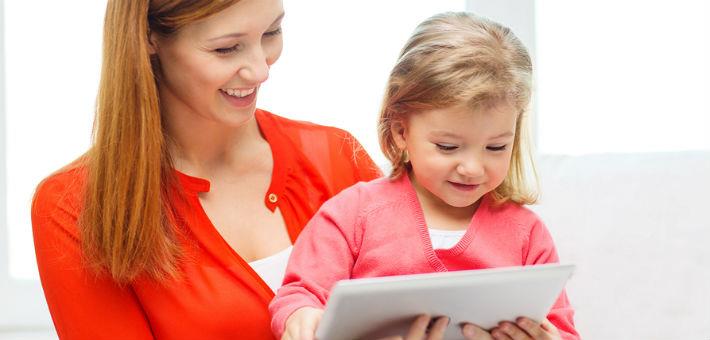
Tablet Use Beneficial To Young Children’s Literacy Learning
A study published in the Australian Journal of Education explored whether access to tablets in the home environment relate to young children’s literacy skills. Results indeed show that 3- to 5-year-olds who have access to a tablet at home have greater literacy skills (better letter sound knowledge and name writing skills). Interestingly, the amount of time children spend on a tablet is no indication for better literacy skills.
Take aways
- Young children (3-5 y/o) with access to tablets at home have greater literacy skills, such as better letter sound knowledge and name writing skills.
- The amount of time children spend on a tablet is no indication for better literacy skills.
- Most parents view their children’s tablet use as beneficial for literacy learning, but they prefer access to tablets at their children’s preschools over home access.
- For parents it’s good to know that letting their children use a tablet at home is favorable for their literacy learning.
Study information
The question?
Is home access to touch screen tablets related to young children’s literacy skills? And what’s the view of parents in this?
Who?
109 3- to 5-year-old children (mean age: 4 years old; 52% were boys) and their parents
Where?
South-east Queensland, Australia
How?
Children’s literacy skills were measured through their letter name and sound knowledge, numeral identification, name writing, basic understanding of print concepts, and a word reading test in which children were presented ten words which they had to read out loud. It’s important to know that the majority (92%) of the children were pre-readers and could not read any words. The sessions lasted approximately 20 minutes, Additionally, the parents were asked if their children had access to tablets at home, how much time they spent on it and whether they believed tablet use was beneficial for their children’s literacy learning.
Facts and findings
- Children who had access to a tablet at home were better able to pronounce letters and write down their names correctly.
- Time spent on tablets was not associated with any of the literacy skills.
- Most parents agreed (46%) or strongly agreed (24%) that tablets could help their child’s early literacy development. Nearly a third (27%) were undecided and only 4% disagreed.
- Only 35% of the parents felt children should have access to tablets at home. More than half of the parents (53%) believed they should be provided to their children at preschools.
- Fun fact: The majority of the preschoolers used gaming apps (75%), followed by literacy apps (55%), creative apps (e.g., for drawing, painting, building) (49%), mathematics apps (37%), e-book apps (27%) and other educational apps (24%).
- Critical note: For most of the literacy skills, there was no benefit of tablet use. Of the six literacy skills that were measured, only two (letter sound knowledge and name writing) were positively associated with access to tablets at home.
- Critical note: This study does not allow for any conclusions about cause (home access to tablets) and effect (literacy learning). The results only show that young children’s literacy skills are associated with access to tablets at home and cannot say anything about what causes what.